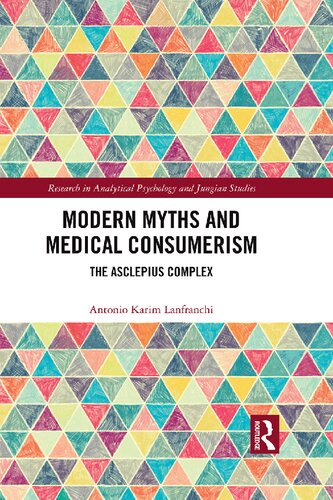

Most ebook files are in PDF format, so you can easily read them using various software such as Foxit Reader or directly on the Google Chrome browser.
Some ebook files are released by publishers in other formats such as .awz, .mobi, .epub, .fb2, etc. You may need to install specific software to read these formats on mobile/PC, such as Calibre.
Please read the tutorial at this link: https://ebookbell.com/faq
We offer FREE conversion to the popular formats you request; however, this may take some time. Therefore, right after payment, please email us, and we will try to provide the service as quickly as possible.
For some exceptional file formats or broken links (if any), please refrain from opening any disputes. Instead, email us first, and we will try to assist within a maximum of 6 hours.
EbookBell Team

5.0
30 reviewsModern Myths and Medical Consumerism is concerned with the loss of a sense of limit in technological medicine today, and the way in which the denial of death leads to an uncontrollable, consumeristic multiplication of needs. Taking its starting point from C. G. Jung’s analytical psychology, the book gives a symbolic interpretation based on archetypal, philosophical and socio-psychoanalytic ideas developed through the author’s personal experience, moving from the medical to the psychoanalytical paradigm.
Lanfranchi depicts ideal sources of medicine, based on archetypal material drawn from Greek myth, and discusses the progressive steps of the doctor’s consciousness’ evolution up to contemporary times. Critiquing current medicine and its ‘modern myths’, the book suggests the prevailing model of economic development is unsustainable, and provides prospects of a more contained ecological medicine and an ethical approach that will allow readers to reflect and move towards a more qualified attitude to mortality.
The book meets the need to transform medicine into a critical domain of human experience, capable of providing essential services consistent with the naturalness of death and environmental sustainability. As such, it will be vital reading to academics in the fields of psychotherapy, analytical psychology, psychiatry and medicine, and those with a philosophical or sociological background.